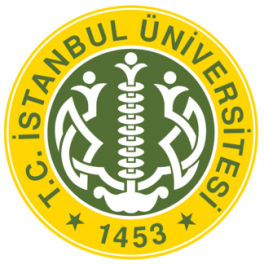预约演示
更新于:2025-05-07
Vulvar Neoplasms
外阴肿瘤
更新于:2025-05-07
基本信息
别名 Cancer of Vulva、Cancer of the Vulva、Cancer of vulva + [92] |
简介 Tumors or cancer of the VULVA. |
关联
63
项与 外阴肿瘤 相关的药物靶点 |
作用机制 CTLA4抑制剂 |
在研机构 |
原研机构 |
最高研发阶段批准上市 |
首次获批国家/地区 美国 |
首次获批日期2022-10-21 |
作用机制 CTLA4抑制剂 [+1] |
在研机构 |
原研机构 |
最高研发阶段批准上市 |
首次获批国家/地区 中国 |
首次获批日期2022-06-28 |
作用机制 HER2拮抗剂 [+1] |
在研机构 |
原研机构 |
在研适应症 |
最高研发阶段批准上市 |
首次获批国家/地区 中国 |
首次获批日期2021-06-08 |
296
项与 外阴肿瘤 相关的临床试验NCT06871787
Evaluation of Bowel Anastomoses During Gynecologic Oncology Surgery Using Near-Infrared Fluorescence Imaging with Indocyanine Green
The goal of this study is to evaluate if indocyanine green (ICG) fluorescence imaging helps reduce complications in bowel surgery performed during gynecologic cancer operations.
The main question it aims to answer is: Does using ICG fluorescence imaging during bowel anastomosis reduce the rate of complications such as leaks, infections, and abscesses within 30 days after surgery? Participants are women aged 18 and older undergoing surgery for gynecologic cancers (such as ovarian, uterine, cervical, or vulvar cancer). During surgery, investigators will inject ICG intravenously, then use a special near-infrared camera to see how well blood flows at the anastomosis site. The investigators will then decide if the reconnection is good enough or needs adjustment.
Researchers will record any complications within the first 30 days after surgery to understand if this imaging method helps reduce surgical risks.
The main question it aims to answer is: Does using ICG fluorescence imaging during bowel anastomosis reduce the rate of complications such as leaks, infections, and abscesses within 30 days after surgery? Participants are women aged 18 and older undergoing surgery for gynecologic cancers (such as ovarian, uterine, cervical, or vulvar cancer). During surgery, investigators will inject ICG intravenously, then use a special near-infrared camera to see how well blood flows at the anastomosis site. The investigators will then decide if the reconnection is good enough or needs adjustment.
Researchers will record any complications within the first 30 days after surgery to understand if this imaging method helps reduce surgical risks.
开始日期2025-09-01 |
申办/合作机构 |
NCT06035068
Sentinel Lymph Node Mapping and Detection With Indocyanine Green and Spy-Phi Handheld Camera Technology in Early-Stage Vulvar Cancer (PILOT)
Doctors typically use blue dye to assist in locating and extracting lymph nodes for biopsy. However, this process can prove somewhat challenging for both patients and medical teams due to its need for extensive coordination and the assistance of a nuclear medicine team. Some studies have talked about using a different method to find these lymph nodes using a special dye called Indocyanine Green (ICG). This method involves shining a special camera on the skin. So far, no studies have directly compared the ICG method to the standard blue dye. The ICG camera could make things easier for patients and doctors, and more patients might choose to have their lymph nodes checked with this new method. The goal of our study is to see if using the ICG dye is just as good as the standard method of blue dye.
开始日期2025-06-01 |
申办/合作机构 |
NCT06476639
A Phase II Randomised Clinical Trial of Ultrasound Groin Monitoring Versus Groin Lymph Node Dissection to De-Escalate the Extent of Surgery in Vulvar Cancer
This study is a phase II, open label, multicentre, three-group, randomised clinical trial. The primary aim of this study is to determine whether intensive groin ultrasound monitoring (1) is effective and safe to replace invasive groin lymph node dissection (LND) to manage vulvar cancer, (2) decreases the morbidity associated with vulvar cancer surgery, and (3) is cost effective.
开始日期2025-04-01 |
100 项与 外阴肿瘤 相关的临床结果
登录后查看更多信息
100 项与 外阴肿瘤 相关的转化医学
登录后查看更多信息
0 项与 外阴肿瘤 相关的专利(医药)
登录后查看更多信息
5,567
项与 外阴肿瘤 相关的文献(医药)2025-12-31·Journal of Obstetrics and Gynaecology
Prognostic indicators and survival rates in vulvar cancer: insights from a retrospective study
Article
作者: Achariyapota, Vuthinun ; Hanamornroongruang, Suchanan ; Rahong, Tharinee ; Sitthinamsuwan, Panitta ; Khemworapong, Khemanat
2025-06-01·European Journal of Obstetrics & Gynecology and Reproductive Biology
Enhancing outcomes in vulvar cancer surgery: A comprehensive approach to complication prevention
Review
作者: Calderón, Ana María ; Silván, José Manuel ; Chimenea, Angel ; Martínez-Maestre, María Ángeles ; Vargas-Rodríguez, Carmen
2025-06-01·Journal of Vascular Surgery Cases, Innovations and Techniques
Vascular segmental exclusion for recurrent vulvar squamous cell carcinoma invading the femoral vessels
Article
作者: Chaar, Cassius Iyad Ochoa ; Cardella, Jonathan ; Schwartz, Andrew W ; Azodi, Masoud
130
项与 外阴肿瘤 相关的新闻(医药)2025-04-28
摘要:生物类似药是与原研生物药在结构和功能上相似的药物,由活细胞或包含活的成分制成,具有成本效益,在癌症和其他疾病治疗中发挥着重要作用 。本文回顾了生物类似药的发展、监管、在癌症治疗中的应用以及未来展望 。不同机构对生物类似药制定了严格的审批和监管指南,以确保其安全性和有效性 。在癌症治疗方面,多种生物类似药已获批用于治疗不同类型的癌症,如乳腺癌、结直肠癌等 。此外,新一代测序技术在癌症诊断和治疗中的应用,也为生物类似药的发展提供了新的机遇 。尽管生物类似药在临床应用中面临一些挑战,但随着研究的深入和技术的进步,其在癌症治疗领域的前景十分广阔 。一、引言:生物类似药的基本概念生物类似药是与生物药(即原研生物制剂)在结构和功能上相似的药物 。生物药源自活细胞和微生物,如动物细胞、组织、酵母和细菌等 。与普通仿制药不同,生物类似药并非简单的复制品,但其成本比原研生物药低,在促进制药行业竞争、让患者能用上必需药物方面发挥着关键作用 。它的出现,为医疗领域带来了新的选择,有望改善患者的治疗体验和医疗资源的分配 。二、EMA 与 FDA 批准的生物类似药指南生物类似药在治疗多种慢性疾病方面,与生物药一样有效、安全和纯净,可用于治疗肾衰竭、生长障碍、炎症性消化疾病、糖尿病、癌症、关节炎、肠道疾病等 。生物药的发展可追溯到 20 世纪,21 世纪其重要性日益凸显 。自 2006 年欧洲批准首个生物类似药 omnitrope(生长激素)以来,欧美批准的生物类似药数量不断增加 。生物药和生物类似药在多个方面存在差异,生物药结构更为复杂,其氨基酸序列和三维结构复杂,且在合成后还会通过糖基化等过程进行修饰 。相比之下,生物类似药在生产过程中虽力求与原研药相似,但因生产工艺等因素,两者仍存在一定区别 (原文 Table 1,对比生物类似药和生物药在多个方面的差异,包括研发成本、安全性、适用疾病、生产复杂性和举例等,让读者更直观地了解两者区别)。不同监管机构对生物类似药的审批和监管制定了详细指南 。美国食品药品监督管理局(FDA)从分析、临床、免疫原性和药理学等多方面评估生物类似药;欧洲药品管理局(EMA)则对比较定性、临床前和临床研究提出要求,并考虑适应症外推;世界卫生组织(WHO)和加拿大卫生部也分别为生物类似药的规范发展提供指导 。这些指南旨在确保生物类似药的质量、安全性和有效性,同时促进生物类似药市场的健康发展 。此外,生物类似药的互换性也是监管关注的重点,不同国家对其规定有所不同,有些国家允许或鼓励生物类似药的替换以节省成本,而有些国家则需要处方医生明确批准 。目前,美国已批准多种生物类似药用于癌症治疗,如 filgrastim、bevacizumab - awwb、trastuzumab dkst、pegfilgrastim - jmdb 等,这些药物在治疗不同类型癌症方面发挥着重要作用 。三、国家药品机构对生物类似药的监管考量许多国家药品机构(NMAs)网站对生物类似药的信息提供情况参差不齐,部分国家在这方面的信息更全面 。尽管欧盟在评估和批准生物类似药方面成绩显著,使得大量生物类似药在欧盟范围内获批上市,但欧洲医疗保健提供者和患者(EHPPs)对生物类似药仍存在认知不足和信任问题,这表明人们对生物药和生物技术的理解还需加深 。获取生物类似药的开发信息对医疗专业人员和患者都至关重要 。目前癌症治疗面临着成本高、药物可及性差等问题,生物药虽在肿瘤治疗中效果显著,但价格昂贵,许多患者难以承受 。生物类似药的出现带来了价格竞争,有助于降低治疗成本 。据估计,2016 - 2022 年,仅欧盟 5 国使用生物类似药就能节省超过 100 亿欧元,美国若推出 11 种生物类似药,未来 5 年医疗保健成本有望降低 2500 亿美元 。不同生物类似药的成本效益有所差异,其成本与生物药的成本比值在 59.4% - 86.0% 之间 。使用生物类似药 1 个月的成本估计在 322 美元至 7424 美元之间,而每位患者的总治疗成本约为 17578 美元至 38923 美元 。在英国,Filgrastim - Biosimilar 的推出使药物使用率增加了 104%;在欧洲,2007 - 2014 年 Epoetin - Biosimilars 的出现,使罗马尼亚和保加利亚的治疗量增长了 263%,价格下降了 50% 。这些数据充分显示了生物类似药在降低医疗成本、提高药物可及性方面的重要作用 。四、生物类似药在胃肠道疾病治疗中的接受度在美国,目前有 6 种生物类似药被批准用于治疗 TNF - 1,但仅有 2 种广泛可用 。一项针对溃疡性结肠炎或克罗恩病患者的研究评估了生物类似药的使用情况和患者对其的态度 。研究发现,虽然超过 80% 的胃肠病学家愿意开具生物类似药处方,但患者对将其作为一线治疗存在犹豫,79% 的患者对治疗效果表示满意,69% 的患者对症状控制表示满意,不过仍有 35% 的患者对使用生物类似药或生物药治疗没有顾虑 。胃肠病学家表示,生物类似药在生物疗法中占比 12% - 13%,在所有药物中占比 4% - 5% ,且大多数(88%)更倾向于使用原研生物药 。当被问及开具生物类似药的原因时,89% 的医生表示想体验新产品,44% 的医生认为其具有疗效、成本效益和经济稳定性等优势 。这一研究结果表明,生物类似药在胃肠道疾病治疗中的接受度有待提高,需要加强对患者的教育,增进医患之间的沟通,让患者更好地了解生物类似药的重要性和优势 。五、生物类似药的制药生产过程生物类似药的开发采用了先进的治疗方法,与化学驱动的药物不同,它主要涉及复杂的肽、蛋白质和糖蛋白,以全新的方式治疗疾病 。其开发过程需要进行临床前表征和药代动力学 / 药效学评估,以确保与原研药的相似性和安全性 。生物类似药的生产是一个系统的过程,主要包括三个关键步骤(原文 Figure 1,展示生物类似药的生产流程,从细胞系的建立、培养扩增,到蛋白质的纯化、制剂和质量控制,让读者清晰了解生产过程)。第一步是确定参考产品的属性,包括细胞的扩增和生物产品的表达,以及评估生物产品的相似性、分离和纯化蛋白质并确定制剂;第二步是明确生物类似药的目标质量属性、临床有效性和效力,同时检测其与参考产品的差异,以保证药代动力学相似性;第三步是对生物类似药进行严格的开发过程和逐步的可比性测试,确保与参考产品相比,任何差异都不会影响产品的临床性能 。生物类似药和仿制药虽都能提供低成本的选择,但两者存在显著差异 。生物类似药大多由活细胞系统生产,如利用大肠杆菌等细菌,通过重组 DNA 技术合成蛋白质 。在生产过程中,即使是温度、营养物质和 pH 值等微小差异,也可能影响药物的结构、功能和安全性 。而仿制药的活性成分通常较小,更容易复制和生产 。例如,许多由大肠杆菌生产的药物,如 filgrastim、IFN α2a、IFN α2b 等,被用于治疗癌症、艾滋病相关的中性粒细胞减少症、白血病等疾病 。六、单克隆抗体作为生物类似药在癌症治疗中的作用单克隆抗体在免疫疗法中具有重要作用,因其能够激活免疫系统对抗癌症 。它可以识别并靶向消灭外来病原体和癌细胞,例如,rituximab 能与 B 细胞上的蛋白质 CD20 结合,从而杀死癌细胞;blinatumomab 则通过结合 B 细胞上的 CD19 和 T 细胞上的 CD3,帮助 T 细胞靶向杀死白血病细胞 。下面介绍几种常见的单克隆抗体生物类似药在癌症治疗中的具体作用 。Herceptin(曲妥珠单抗)及其生物类似药 ogivri:Herceptin(曲妥珠单抗)主要用于治疗 HER2 阳性乳腺癌 。在正常细胞中,HER2 等受体参与细胞生长和增殖的信号传导 。但在 HER2 阳性乳腺癌细胞中,HER2 受体数量过多,会导致细胞生长信号过度激活,从而引发癌症 。曲妥珠单抗能够特异性地结合 HER2 受体,阻止其形成二聚体,进而抑制细胞内的信号传导,阻碍癌细胞的生长 (原文 Figure 4,展示曲妥珠单抗在转移性乳腺癌中的作用机制,即与 HER2 受体结合,阻止癌细胞生长,帮助读者理解其作用原理)。此外,抗体 - 药物偶联物 “Trastuzumab deruxtecan” 已获批用于治疗先前接受过至少两种针对 HER2 治疗方案的癌症患者 。一项临床试验表明,与 “Trastuzumab emtansine” 相比,“Trastuzumab deruxtecan” 在治疗转移性乳腺癌方面更具优势 。Rituximab(利妥昔单抗):Rituximab(利妥昔单抗)是一种靶向 B 细胞表面 CD20 蛋白的抗体,主要用于治疗非霍奇金淋巴瘤、类风湿关节炎和自身免疫性溶血性贫血等疾病 。它通过与 CD20 蛋白结合,能够抑制 B 细胞的功能,从而达到治疗疾病的目的 。在使用 Rituximab 治疗前和治疗过程中,需要进行多项检测,如肝炎检测和结核病检测等,以确保治疗的安全性 。首次给药通常需要在医院或门诊输液室进行静脉输注,且治疗过程中需使用类固醇、对乙酰氨基酚和抗组胺药等,以减少过敏反应的发生 (原文 Figure 5,展示利妥昔单抗与 B 细胞结合,引发补体介导的细胞毒性作用、抗体依赖的细胞介导的细胞毒性作用等,从而清除 B 细胞的机制)。不过,Rituximab 也存在一些副作用,如可能导致身体对某些疾病的易感性增加,还可能引发血小板聚集减少、进行性多灶性白质脑病等严重不良反应 。Adalimumab 和 Infliximab(抗 TNF 治疗药物):Adalimumab 和 Infliximab 都是针对细胞因子 TNF - α 的单克隆抗体 。TNF - α 在炎症反应中起着关键作用,与多种炎症性疾病的发生发展密切相关 。这两种药物通过靶向 TNF - α ,能够减轻炎症反应,在治疗炎症性肠病、类风湿关节炎和银屑病等疾病方面具有显著疗效 。其中,Infliximab 的临床开发最初在小鼠身上进行,之后经过改造使其更适用于人体 。常见的品牌名有 Remicade、Remsima、Renflexis 和 Avsola 等 。使用 Remicade 治疗时,通常在治疗开始时(0 - 6 周)进行静脉输注,之后在治疗结束时(8 周)每 8 周进行一次维持治疗,每次输注持续 2 小时 。七、化疗诱导的贫血与癌症治疗中的促红细胞生成素化疗诱导的贫血是癌症治疗中常见的并发症,会严重影响患者的生活质量 。Epoetin alfa 生物类似药通过临床前表征和药效学研究开发而来,在适当的药物监测下,对治疗贫血具有显著效果 。慢性肾病患者中贫血的发生率较高,且对健康相关生活质量的影响较大 。在开发 Epoetin alfa 生物类似药时,需要进行一系列的分析和评估,以确保其与原研药的相似性和安全性 。临床研究表明,生物类似药 Epoetin 与原研药在药效学方面具有相似性,为贫血患者提供了更多的治疗选择 。Epoetin(促红细胞生成素)与其受体(EpoR)的相互作用对于促进红细胞的生成和存活至关重要 。通过使用红细胞白血病细胞系等研究手段,可以深入了解生物类似药对红细胞祖细胞的作用机制 (原文 Figure 6,展示 Epoetin alfa 生物类似药的作用机制,即与促红细胞生成素受体结合,促进红细胞的生成和增殖,纠正贫血)。八、生物类似药在肿瘤学实践中的应用及生物标志物的发现生物类似药在肿瘤学实践中发挥着越来越重要的作用,例如 filgrastim 和 epoetin 等生物类似药,不仅具有抗癌作用,还能提高患者的健康水平 。对于肿瘤学家来说,从原研生物产品转换使用生物类似药,主要担忧的是疗效降低和出现不良事件,以及生物药的临床改变可能诱导免疫原性 。然而,大量研究证明,生物类似药不仅在癌症治疗中安全有效,在治疗克罗恩病、结肠炎等其他疾病方面也有良好表现 。生物类似药相较于参考产品具有成本优势,多种免疫疗法与生物类似药联合使用,展现出了良好的预防效果 。如 filgrastim 用于预防化疗引起的(发热性)中性粒细胞减少症,obinutuzumab 用于治疗滤泡性淋巴瘤,pembrolizumab 用于治疗肺癌等 。肿瘤治疗中的生物类似药在随机试验中,展现出与参考药物相似的肿瘤反应和疗效 。例如,曲妥珠单抗生物类似药用于治疗乳腺癌或转移性胃腺癌,经过三期试验后获批,在 24 周的治疗中表现出良好的效果 。在癌症诊断方面,高通量计算分析和 “片段组学” 等新的 “组学” 研究,为血液检测和肝癌检测带来了新方法 。通过检测 DNA 片段,利用机器学习技术可以区分癌症亚型,发现与肿瘤相关的基因表达变化 。循环肿瘤 DNA(ctDNA)和细胞游离 DNA(cfDNA)分析在癌症诊断和监测中具有重要意义,能够检测肿瘤的突变、监测癌症复发,还可以通过检测 AKT 和 PIK3CA 等基因的突变,为癌症治疗提供指导(原文 Figure 8,展示 cfDNA 分析在检测转移性病变中的应用,包括突变特征分析、染色体易位分析等多种检测方法及应用方向)。液体活检技术将片段组学与突变和表观遗传变化相结合,可用于多种癌症的早期检测,如肺癌、结肠癌和乳腺癌等,通过多癌症筛查能够早期发现异常有丝分裂的后果 。cfDNA 分析作为一种快速发展的早期诊断方法,能够在周边血液中检测到肿瘤特异性的变异,作为一种生物标志物,为癌症的早期诊断和治疗提供了重要依据 。九、新一代测序技术对癌症诊断的影响新一代测序(NGS)技术通过大规模测序和高通量计算分析,结合多种组学研究,推动了肿瘤学从基于肿瘤部位的分类向基于癌症分子的分类转变 。该技术涵盖核酸分离、DNA/RNA 片段化、文库制备与测序、扩增以及数据注释等多个步骤,能够对多个基因进行高通量测序,检测出罕见的变异,从而更容易发现患者的基因突变,为个性化医疗和癌症治疗提供了有力支持 (原文 Figure 9,展示通过 NGS 的多组学网络分析,包括基因组、转录组、蛋白质组等,对肿瘤进行分子特征分析,以实现精准医疗)。在癌症研究中,NGS 技术可用于多种癌症的基因检测,如确定卵巢癌中的体细胞突变、评估宫颈癌、甲状腺癌、外阴癌和唾液癌的肿瘤突变负荷等 。此外,它还能揭示肿瘤与宿主免疫系统之间的相互作用,为癌症的进展、分子机制研究以及肿瘤免疫微环境的生物标志物发现提供重要信息 。通过对多组学数据的分析,可以预测疾病亚型和疾病进展,为精准医疗提供依据,有望将癌症治疗的成功率提高 10 倍 。十、未来展望生物产品的复杂性使得生物类似药比化学药物更为复杂,这对制造商和处方医生提出了更高的要求 。在生物类似药上市后,需要进行严格的监测,评估其疗效和安全性 。目前,市场上的 33 种生物类似药中,有 17 种用于癌症治疗,3 种用于自身免疫性疾病,1 种用于糖尿病 。未来,随着监管机构对生物类似药安全性和有效性的信心增强,动物测试和部分临床疗效测试可能会逐渐减少,但临床药理学测试仍将是确保生物类似药质量的重要环节 。由于生物类似药具有免疫原性,可能会引发一些安全问题,如患者免疫系统对其产生异常反应,导致治疗效果降低或需要停止治疗 。此外,生物类似药的分子结构较大且复杂,难以准确判断其与原研生物药是否完全平行,目前的分析方法虽然有了很大进展,但仍存在一定的局限性,不同实验室之间的数据比较也存在标准化的难题 。生物类似药和靶向治疗各有优劣,靶向治疗药物能够精准作用于癌细胞的特定化学物质和蛋白质,而生物类似药不仅可以治疗多种疾病,还能在必要时提供个性化治疗,减少副作用 。未来,随着技术的不断进步,生物类似药有望在更多疾病的治疗中发挥更大作用,尤其是在癌症治疗领域,有望为患者提供更有效、更经济的治疗选择 。同时,在药物研发和应用过程中,需要更加注重药物的安全性、有效性以及质量控制,以确保患者能够从中获得最大的益处 。识别微信二维码,添加生物制品圈小编,符合条件者即可加入生物制品微信群!请注明:姓名+研究方向!版权声明本公众号所有转载文章系出于传递更多信息之目的,且明确注明来源和作者,不希望被转载的媒体或个人可与我们联系(cbplib@163.com),我们将立即进行删除处理。所有文章仅代表作者观不本站。
生物类似药
2025-04-15
·肿瘤界
点击蓝字 关注我们NEWS2025年4月12日,中国临床肿瘤学会(CSCO)妇科肿瘤专家委员会(以下简称“专委会”)在西安市召开第三届换届会议。李力教授当选为新一届主任委员,李贵玲教授等当选为第三届副主任委员;安菊生教授等当选新一届常务委员。CSCO理事长于金明院士、副理事长朱军教授出席会议。刘凌主任主持会议并介绍分支机构换届原则。第二届妇科肿瘤专委会主任委员吴令英教授进行工作总结。首先,吴令英教授代表专委会感谢各位委员参会。她指出,妇科肿瘤严重威胁女性健康,专委会设立的初心及宗旨皆源于此。专委会于2017年08月25—26日在北京成立以来,从无到有,开展教育培训,推广指南及相关规范,鼓励中青年医生参与国际学术交流,并推动多学科协作。专委会成立后每年开展妇瘤专场,邀请包括港澳台在内的国内专家以及国际专家参会,讨论学术发展前沿;各界委员积极投稿,发展会员,组织参会。指南编写作为专委会的重要工作,在专委会成立初期即制定了第一版卵巢癌指南,之后逐年更新,目前已更新六版。在此基础上,专委会大量开展基层巡讲以及规范化培训班等面向基层的培训及教育工作;主办CSCO妇科肿瘤学术专场,开展全国巡讲,专业赋能,领域聚焦;2022年首次发布宫颈癌及子宫内膜癌诊疗指南,此后每年更新。最后,吴令英教授感谢为专委会工作开展作出巨大贡献的历任委员。CSCO妇科肿瘤专家委员会秘书长袁光文教授介绍了本次换届的筹备情况。学会按照《中国临床肿瘤学会分支机构管理条例》下达换届通知。根据规定,专委会征求学会理事以及上届主任委员、副主任委员、委员意见,结合既往参加专委会学术活动及会议等情况,综合考虑覆盖全国绝大多数地区,委员覆盖妇科肿瘤的手术、放疗、化疗以及病理等多个专业,讨论提出留任和不留任成员建议名单以及新增成员意向和建议名单,并在广泛征集专委会委员意见基础上形成新一届候选委员名单,并提交学会审核,候选成员等各项指标均符合学会要求。本次换届新增委员65名,委员达到141名。刘凌主任介绍了学会关于分支机构换届的具体程序和要求,宣读了民政部部管社会组织综合党委关于开展论坛活动清理整治的要求,并宣读学会同意换届的批复。李力教授在竞聘演讲中回顾了自己在学会的既往工作经历,并提出新一届专委会工作设想。基于习近平总书记的指示,专委会的工作要大力弘扬求真务实、真抓实干的作风,真正做出实绩。李力教授提出未来的工作重心:办好三大会;编好两大纲;协调两事;落实三项。基于此,未来工作计划将包括以下几个方面:①举行更多高质量学术会议,包括CSCO 学术年会的妇科肿瘤分会场、BOA大会妇科肿瘤专场、妇科肿瘤专委会学术年会。②指南制定与修订:卵巢癌、子宫内膜癌、宫颈癌诊治指南的修订,外阴癌、阴道癌诊治指南的制定,以及CSCO指南大会妇科肿瘤专场。③共识的制定:不具备制定指南制定条件,对临床大家所关心的问题达成共识。④临床研究与交流合作:组织协调妇科肿瘤临床多中心、多学科、多层次的协作研究,包括注册临床试验和医生发起临床研究等。加强与国内外相关学术团体交流与合作。促进国内高质量学术交流和创新性研究工作的开展。⑤教育与培训方面:开展多次妇科恶性肿瘤规范诊治巡讲,开展继续教育、培训专业妇科肿瘤人才,开展妇科肿瘤防治科普宣传教育。最后,李力教授特别感谢专委会成员的帮助支持,由衷地希望未来能够继续团结合作积极地参与和完成学会的各项工作并进一步发扬光大。刘凌主任组织投票。经过全场与会委员的投票,副理事长朱军教授宣读投票结果:李力教授当选新一届主任委员,李贵玲教授、李俊东教授、李宁教授、娄阁教授、王国庆教授、杨宏英教授、尹如铁教授、张师前教授当选为第三届副主任委员,安菊生教授、蔡红兵教授、曹冬焱教授等36位教授当选新一届常务委员。CSCO理事长于金明院士、副理事长朱军教授致贺本次第三届专委会换届会议圆满结束,并感谢吴令英教授与第二届专委会全体委员的辛苦付出,期待新一届专委会在学会和李力教授的带领下砥砺前行,再创辉煌!声明:本文由“肿瘤界”整理与汇编,欢迎分享转载,如需使用本文内容,请务必注明出处。来源:CSCO官微、官网原标题:中国临床肿瘤学会(CSCO)妇科肿瘤专家委员会第三届换届选举会议顺利召开编辑:lagertha审核:南星
CSCO会议高管变更
2025-04-14
药械追踪No.1 / 强生埃万妥单抗在华正式上市2025年4月12日,强生公司宣布,旗下创新肺癌治疗药物锐珂(埃万妥单抗注射液)正式在华上市。埃万妥单抗是一款靶向EGFR和MET的双特异性抗体。此次获批是基于Ⅲ期PAPILLON研究的积极结果,与单独化疗相比,埃万妥单抗联合化疗可将疾病进展或死亡风险降低61%。埃万妥单抗于2021年5月在美国首次获批上市,目前美国国家综合癌症网络(NCCN)临床指南已推荐埃万妥单抗联合化疗作为EGFR 20号外显子插入突变NSCLC的首选一线治疗方案。2025年2月8日,埃万妥单抗获国家药监局批准上市,与卡铂和培美曲塞联合给药,适用于经检测确认携带表皮生长因子受体(EGFR)20号外显子插入突变的局部晚期或转移性非小细胞肺癌成人患者的一线治疗。->点击文末阅读原文,解锁完整双语新闻No.2 / 美国FDA批准欧狄沃联合逸沃治疗肝细胞癌2025年4月11日,百时美施贵宝(NYSE:BMY)宣布,美国FDA已批准欧狄沃(纳武利尤单抗)联合逸沃(伊匹木单抗)用于治疗不可切除或转移性肝细胞癌(HCC)的成人患者,这是最常见的原发性肝癌类型。这一批准基于全球Ⅲ期随机、开放标签CheckMate-9DW试验的结果,该试验评估了欧狄沃联合逸沃与研究者选择的酪氨酸激酶抑制剂单药治疗(仑伐替尼或索拉非尼)相比,在未接受过系统治疗的不可切除或转移性HCC患者中的疗效。在试验中,欧狄沃联合逸沃在总生存期(OS)和客观缓解率(ORR)方面显示出具有统计学意义的改善,是唯一一项在与该对照组相比显示出更优结果的试验,从而支持了FDA的批准。->点击文末阅读原文,解锁完整双语新闻No.3 / 默沙东佳达修9在华获批用于16~26岁男性接种2025年4月14日,默沙东宣布,旗下九价人乳头瘤病毒疫苗(酿酒酵母)(九价HPV疫苗)多项新适应证已获得国家药品监督管理局的上市批准,适用于16~26岁男性接种。九价HPV疫苗是由6型、11型、16型、18型、31型、33型、45型、52型和58型九种HPV的主要衣壳蛋白组成的病毒样颗粒经高度纯化、混合制成,最早于2018年4月在中国火速获批上市,商品名佳达修9,可用于预防HPV引起的宫颈癌、外阴癌、阴道癌、肛门癌、生殖器疣、持续感染、癌前病变或不典型病变,年龄范围从16~26岁女性,扩展到2022年的9~45岁女性。2025年1月,默沙东佳达修(四价HPV疫苗)在华获批用于9~26岁男性,成为国内首个用于男性的HPV疫苗。此次佳达修9紧随其后,成为国内第二个用于男性的HPV疫苗。->点击文末阅读原文,解锁完整双语新闻企业动态No.1 / 人用破伤风抗毒素龙头企业江西生物拟赴港上市2025年4月14日,江西生物制品研究所股份有限公司(简称“江西生物”)递交招股书,拟赴港交所上市。江西生物是中国最大的人用破伤风抗毒素(人用TAT)提供商和出口商,也是全产业链贯通的抗血清平商。凭借在抗血清产品研发、生产以及销售领域逾50年的专业积淀,江西生物已在国内外建立稳固的市场地位。公司旗下人用TAT已被列入国家甲类医保品种、国家基本药目录及国家急(抢)救药品目录;按2024年销量计,其在中国和全球市场份额分别为65.8%及36.6%。公司总收入从2022年的人民币142.0百万元大幅增长至2024年的220.8百万元,复合年增长率为24.7%;年度利润也从2022年的26.5百万元激增至2024年的75.1百万元,复合年增长率高达68.5%。->点击文末阅读原文,解锁完整双语新闻行业政策No.1 / 卫健委:设置健康体重管理门诊2025年4月11日,卫健委发布《关于做好健康体重管理门诊设置与管理工作的通知》,鼓励有条件的三级综合医院、儿童医院、中医医院(含中西医结合医院、少数民族医医院,下同)设置健康体重管理门诊。国家卫生健康委、国家中医药局属(管)、省(区、市)属综合医院、儿童医院、中医医院要在2025年6月底前基本实现健康体重管理门诊设置全覆盖。开展健康体重管理门诊服务的医院要强化工作统筹和全院专业资源调配,集中设置健康体重管理门诊,配备相对固定的儿科、全科、内分泌科、临床营养科、精神心理科、心血管内科、消化内科、普通外科、康复医学科、中医科等科室医师接诊,并合理安排门诊频次。鼓励综合实力较强的医院设置肥胖防治中心,提供住院健康体重管理相关服务。->点击阅读原文,解锁完整双语新闻全球医疗情报领导者解锁隐藏在数据中的商业潜力 关于 G B I”自从2002年成立以来,GBI始终以技术为驱动,为药企、器械及行业相关服务商提供贯穿生命周期的全球药品市场竞争数据、全球行业资讯、HCPs洞察、全国医疗器械数据等商业信息与洞察,助力企业在进行战略布局和决策时,脱颖而出。历经20余年的深耕细作GBI已成为95%以上跨国药企、国内头部药企、咨询与投资机构等医疗圈灯塔用户值得信赖的长期合作伙伴。联系我们投稿 | 发稿 | 媒体合作▶ xujingou@baidu.com数据库 | 咨询服务 | 资讯追踪▶ 点击左下“阅读原文”完成表单填写点击阅读原文,解锁完整双语新闻
上市批准临床3期疫苗临床结果
分析
对领域进行一次全面的分析。
登录
或

生物医药百科问答
全新生物医药AI Agent 覆盖科研全链路,让突破性发现快人一步
立即开始免费试用!
智慧芽新药情报库是智慧芽专为生命科学人士构建的基于AI的创新药情报平台,助您全方位提升您的研发与决策效率。
立即开始数据试用!
智慧芽新药库数据也通过智慧芽数据服务平台,以API或者数据包形式对外开放,助您更加充分利用智慧芽新药情报信息。
生物序列数据库
生物药研发创新
免费使用
化学结构数据库
小分子化药研发创新
免费使用






